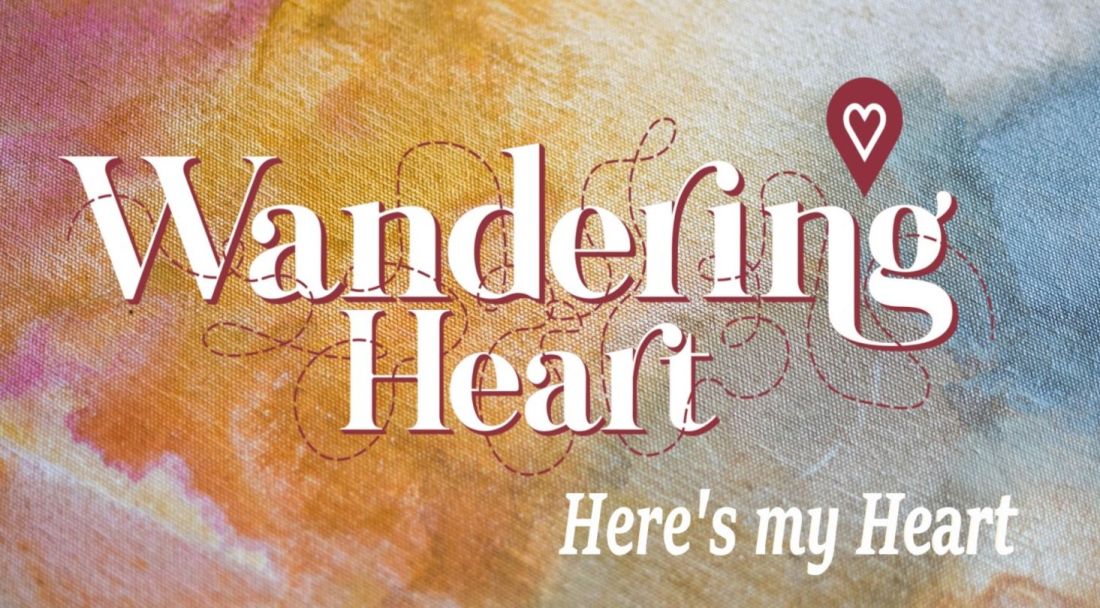Watch on YouTube
Rev Melissa Krabbe
Things fall apart.
William Butler Yeats says this in his poem entitled The Second Coming, a poem he wrote just after WWI when for many there was a pervading sense of hopelessness.
“Things fall apart; the centre cannot hold; Mere anarchy is loosed upon the world…”[1]
“Things Fall Apart” is also the title of a Booker Prize winning novel by Chinua Achebe in which the characters are dealing with the tension between tradition and change, between what was and what is and what will be.
The story is set in what is now Nigeria. There are many factors in the tension. The village leader has died and his son is now in charge. White Christian Colonialists have come to the area and are trying to convert people to English ways and to Christianity. There’s tension in the relationships between the families and between the clans. At one point, one of the elders from another village tells the young leader:
“My son has told me about you, and I am happy you have come to see us. I knew your father, Iweka. He was a great man. He had many friends here and came to see them quite often. Those were good days when a man had friends in distant clans. Your generation does not know that. You stay at home, afraid of your next-door neighbor. Even a man’s motherland is strange to him nowadays.”[2]
When the tension between the old and new ways, or between the status quo and change becomes too much, things fall apart. It’s a statement of what seems inevitable. Sometimes the harder we try to hold things together, things fall apart.
Is it inevitable?

Things have fallen apart for the disciples in today’s reading from John 21. They thought what they had going with Jesus was the beginning of something that would last forever. But there was tension between love and the law, between the new ways of Jesus Christ and the old ways of the Jewish leaders. This came to a crescendo with Jesus’ arrest and trial before the Sanhedrim, when the high priest said to Jesus “Tell us if you are the Messiah, the Son of God.” Jesus replied “So you say.” Then the high priest tore his clothing to show his horror and cried out, “Blasphemy!” And they sent him on to the governor Pilate and demanded that Jesus be crucified.
We tend to see Jesus’ death and resurrection as the resolution of that tension, and in many ways, it is. But the disciples are in limbo. They’re still dealing with all the ways things have fallen apart. There is, of course, joy to know that Jesus is risen and is no longer dead, but now what? In their previous encounter with the risen Jesus, he explained the scriptures to them that foretold his death and resurrection, but where do they stand now? What are they supposed to do now?
Some say we should judge Peter and the other disciples for going back to fishing. Are they giving up now and going back to their old ways? But fishing was their occupation before they met Jesus. And on the day of the resurrection, the angels told Mary to tell the disciples to meet Jesus in Galilee (Mark 16:7). So now the disciples have done what they were told to do and gone to back to Galilee where they first met Jesus. And not surprisingly, while they are waiting for Jesus, they are fishing, using their time productively. Catching some fish will help their families have some income.[4] Doing something also helps them get out of the funk of grief and the swirling cloud of what if’s and why’s.
In a sense, they’ve come full circle, back to where they started.

On the first Sunday of Lent, we read the story in Luke 5 in which the disciples have been out fishing all night and caught nothing. Jesus comes along when they are cleaning their nets and getting ready to go home and asks to borrow a boat to serve as a pulpit to talk to the people who have gathered. Then he asks Peter to push back out into the water and let down the nets one more time. Peter points out that they’ve fished all night and caught nothing, but he does what Jesus says and they catch so many fish that the nets are nearly breaking.
This same thing happens in today’s scripture. The disciples have been fishing all night and caught nothing. They see a man on the shore who asks, “Have you caught any fish?” “No,” they reply.
Then Jesus said, “Throw out your net on the right-hand side of the boat, and you’ll get some!”So they did, and they could barely haul in the net because there were so many fish in it. (John 21:3-6)
Then John realizes that the man on the shore is Jesus. Did he remember that the last time they caught so many fish it was because Jesus told them to try one more time?
“THERE ARE NO FISH UNDER THE ICE!”
The man jumped up and looked around but didn’t see anyone. He carried on cutting into the ice, and again, the voice boomed:
”THERE ARE NO FISH UNDER THE ICE!”
Still nobody. Was he going mad? The man stumbled to a new spot and started drilling another hole when the voice shouted for the third time:
”THERE ARE NO FISH UNDER THE ICE!”
The man looked up into the blinding light and said, “Is that you, God?”
The voice answered, “NO, YOU IDIOT. IT’S THE MANAGER OF THE ICE RINK!”[5]
For the disciples, it wasn’t the ice rink manager, it was Jesus. When Peter recognizes Jesus and jumps in the water and swims to shore. This is reminiscent of an earlier event in which Peter sees Jesus walking on the water and steps out of the boat to try it himself.

[6]When they all get to shore, they find that Jesus has cooked breakfast. Jesus served them bread and fish, just like he did when he fed the huge crowd that day with the small amount of bread and fish that a young boy had in his lunch basket.
It’s as if Jesus is reminding them of important lessons they may or may not have learned when these earlier events happened, that God in Christ is worthy of our trust, and that God provides for us in abundance. Jesus said, “I have come to give you life in abundance.” (John 10:10)
Jesus is showing them grace upon grace, even though all of the disciples had deserted Jesus when he was arrested and crucified.

The most notable desertion was Peter who had denied knowing Jesus three times, and then the rooster crowed.[7]
Jesus doesn’t judge or chastise or stir up shame, though the disciples are likely feeling ashamed anyway.
Psychologist Brené Brown tells us the antidote to shame. She says:
“If you put shame in a Petri dish, it needs three things to grow exponentially: secrecy, silence and judgment. If you put the same amount of shame in a Petri dish and douse it with empathy, it can’t survive.”[8]
Jesus gives the disciples empathy in a fresh start, a miraculous catch of fish, and breakfast.
Then Jesus asks Peter three times, “Do you love me?” And when Peter says that he does, Jesus says, “Feed my sheep….Tend my sheep.”
If the disciples were wondering what comes next, Jesus has just given them their mission. Feed my sheep. Physically, emotionally, spiritually.
I must confess that this repeated question gets me singing the 50’s song that became popular more recently in the movie Dirty Dancing. Do you know it? Sing it with me…
Do you love me? (Do you love me)
Do you love me? (Do you love me)
Now do you love me?
(Do you love me now that I can dance?)
That might seem like it’s irrelevant, but actually, now that Jesus has been raised from the dead, he can dance in a whole new way. And Jesus would soon ascend to heaven and send the Holy Spirit. Theologians have a fancy word for the interaction between God, Jesus, and the Holy Spirit: Perichoresis. It literally means to go around or to encompass. In modern terms, it’s codependency without the loss of individuality.
Many refer to it as the dance. That dance is not just within the three persons of the trinity, but also in the ways the holy spirit interacts with us.
The disciples are going to need to engage in the dance as they go forward on their new mission. They will grow into leaders of this new movement that is based in love and grace instead of rules and laws. Especially Peter, who tradition says was the first pope.
There would be a lot to figure out going forward. The tension between old ways and new ways would continue to be a struggle, just as it is today. But the resurrection gives us hope because we see that though things fall apart, things are also restored, redeemed, made new.
And he is before all things, and in him all things hold together. Colossians 1:17
In working through the tension between what was, what is, and what will be, it helps to talk about our hope, our grief, and the ways God is working in our lives.
What makes the church the church?
What faith practices are most meaningful and effective?
Which faith practices work better when we’re gathered together and which are better when we do them on our own?
How do we show people the same abundance and unconditional love and grace that Jesus showed to the disciples that morning on the beach?
John says in his first letter,
We know what love is because Jesus gave his life for us. This is why we must give our lives for each other. 1 John 3:16
Let us love God with all our hearts, mind, and strength, and trust God to guide us as we give our lives for each other.
Thanks, God.
[1] https://www.poetryfoundation.org/poems/43290/the-second-coming
[2] https://en.wikipedia.org/wiki/Things_Fall_Apart
[3] Photo by Federico Tasin on Unsplash
[4] Helyer, Larry R.. The Life and Witness of Peter (p. 64). InterVarsity Press. Kindle Edition.
[5] https://www.reelcoquinafishing.com/blogs/florida-fishing-blog/the-funnier-fishing-jokes
[6] Photo by aliwan suratmaja on Unsplash
[7] Photo by Dušan veverkolog on Unsplash
[8] https://www.happify.com/hd/powerful-antidote-to-shame-brene-brown/

